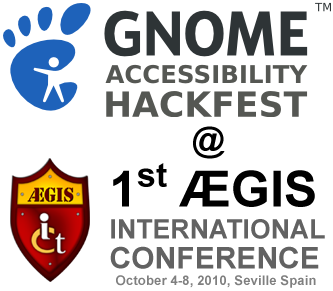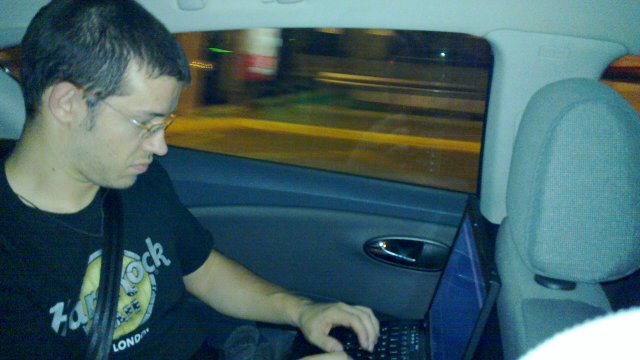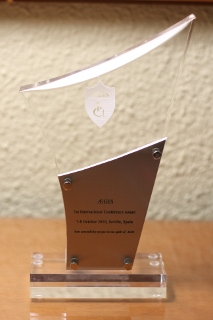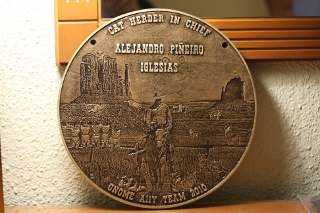
As you probably already know, most of the gnome a11y community were this week on Seville, on the GNOME Accessibility Hackfest, taking the most of the fact that some of them were already planning to assist the first international AEGIS conference.
Not too much blogging during this week, sorry. It was a really busy week. Assisting the conference or trying to hack something (I’m cooking some patches, imminent bug report).
Although it was a exhausting week (and somewhat a jinx week), I really think that it was worth the effort. Being face-to-face allow us to have meetings, coordinate ourselves, check the current status of GNOME accessibility and planning the priorities having in mind GNOME 3.0. And of course code. You can see in the following picture that Mario can work on WebKitGtk a11y in any place, and that he can’t stop in the middle of a task:

In the same way, the conference allow us to promote GNOME, and GNOME accessibility in particular, to a different public. Several AEGIS presentations were related to GNOME projects, some of them about specific GNOME modules and other about projects using GNOME, like the Guadalinfo project.
For any reason I received the award “Best accessibility project in the spirit of AEGIS”, due my work related to Cally and gnome-shell accessibility. In my opinion other people deserve it, like Joseph Scheuhammer, as his gnome-shell magnification solution is already integrated on gnome-shell, while my patches are still WIP. In fact, IMHO, this award should be granted to the GNOME accessibility community as a whole. Probably I fit more in the “spirit of AEGIS” because the most repeated word on AEGIS presentations were “prototype”. Who knows.

I hope that all the presentations and the extra publicity of this award becomes a push to the interest to GNOME from the people attending the conference.
Finally I want to say “thank you” to a lot of people. I will try to not forgot anyone. If this is the case, please forgive me.
Thank you to the GNOME Foundation. Without his sponsorship most of the attendees would lost the hackfest. Thanks to the local team, mostly Emergya people, to coordinate several parts of the hackfest and behave like the perfect hosts during our time there. Special remark to Alejandro Leiva, as the in-theory common task of find and book the hotel was finally a little hell-in-earth. Thanks to Emergya and Yaco for sponsorship the BeerFest. Thanks to Joanmarie Diggs, as I’m always learning new accessibility things from the wisdom she irradiates.Thanks to all the people to make the effort to come to the hackfest.
And finally, thanks to the GNOME accessibility team for this really big and heavy present that they give me during the hackfest (if anyone doesn’t catch the joke, please check this video).

Wow, this was a really big post.







